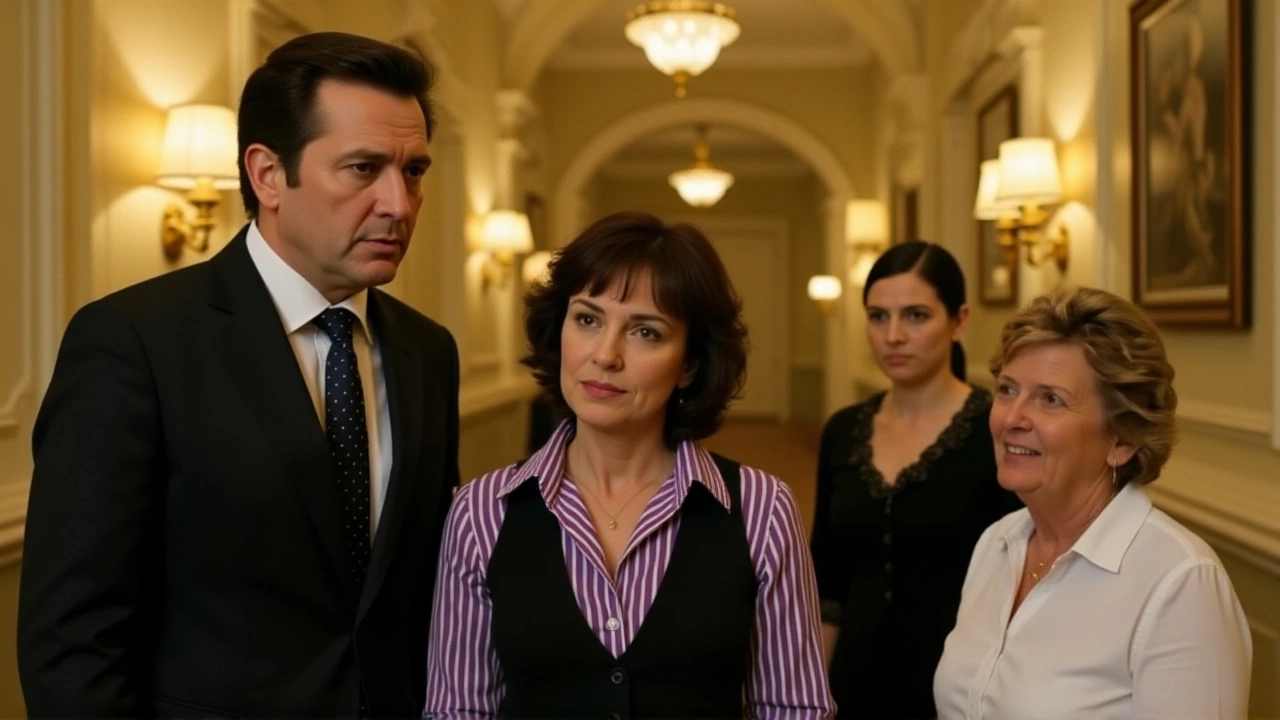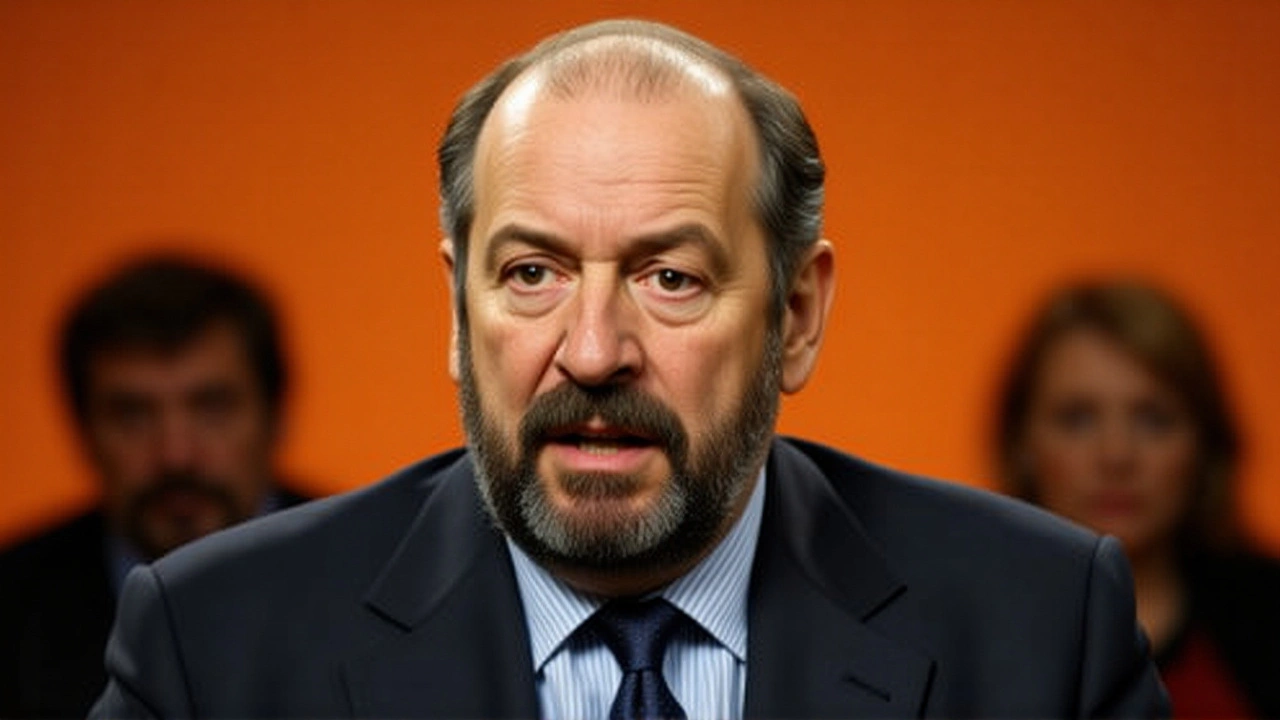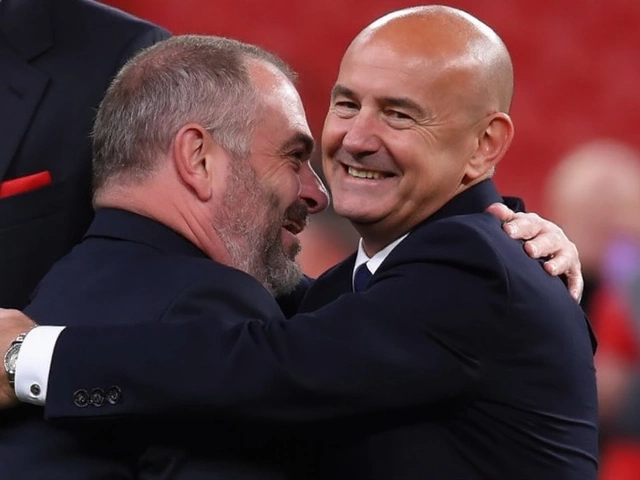Third Woman Accuses Late Sir Clement Freud of Rape at 17, Renewing Calls to Strip Knighthood
When Vicky Hayes broke her silence in 2016, she didn’t just tell a story—she shattered a carefully constructed legacy. At 17, Hayes alleged she was raped by Sir Clement Raphael Freud, the beloved British broadcaster, former Liberal MP, and knighted public figure whose face had been a fixture on BBC Radio 4’s Just a Minute and in dog food ads with his bloodhound, Henry. The revelation came as part of the ITV Exposure documentary London, a searing investigation by the same team that exposed Jimmy Savile. Hayes’ account, one of three detailed in the program, forced Britain to confront the quiet monsters hiding in plain sight—and whether a man who wore a title could still be honored after such crimes.
The Weight of a Reputation
Sir Clement Freud wasn’t just a politician or a TV personality. He was a pillar of British cultural life: witty, urbane, the grandson of Sigmund Freud, the son of architect Ernst L. Freud, and a man who moved effortlessly through elite circles. Knighted in 1984 for political service, he served as MP for Isle of Ely from 1973 to 1987. His charm was his armor. His public persona—jovial, intellectual, a man who could talk about politics and pâté with equal ease—made him untouchable. Until now.The ITV documentary didn’t just surface allegations. It gave voice to survivors who had spent decades silenced by shame, fear, or the sheer power of Freud’s status. Sylvia Woosley, who said Freud began grooming her at age 10 in the 1950s, described being sent to live with him after her parents’ divorce. She said he kissed her on the mouth, touched her inappropriately, and escalated to sexual abuse until she escaped at 19. Another anonymous woman recounted being raped at 18 during a dinner at her family home, while her parents were away. And then there was Hayes.
Hayes, now in her 50s, said Freud assaulted her when she was 17—during what she thought was a harmless social visit. She didn’t report it at the time. She didn’t tell anyone for decades. But when the ITV documentary aired on June 15, 2016, she spoke out. "Breaking my silence about Clement Freud’s abuse was like a rebirth," she told the Radio Times. "He had no right to his reputation as a ‘pillar of society.’ He ought to be posthumously stripped of his knighthood."
The System That Failed
Operation Yewtree, the Metropolitan Police unit created after the Savile scandal, had received Freud’s name in 2012. Two alleged victims had reported him to the NSPCC. But by then, Freud was already dead. He passed away on April 15, 2009, at age 84. No charges could be brought. No trial. No justice in court.But that didn’t mean the truth disappeared. In fact, it festered. Craig Murray, a former British ambassador and former student at the University of Dundee, came forward with an allegation from Freud’s time as Rector in the 1970s: Freud allegedly asked the student union president to "pimp for him and select a woman to entertain him." The university, which had honored him with the role, has never publicly responded.
Freud’s widow, Jill Freud, issued a statement after the documentary aired: "I am deeply saddened and profoundly sorry." She did not confirm or deny the allegations. But her words—measured, sorrowful, noncommittal—spoke volumes. They were the kind of statement a grieving spouse makes when the weight of truth is too heavy to deny, but too dangerous to admit.
Who Gets to Be Honored?
The knighthood. That’s the real question now. In British tradition, honors are rarely revoked. Only 13 knighthoods have been stripped since 1900—and most were for treason or fraud. No one has ever had a knighthood revoked for historic sexual abuse. But Hayes isn’t alone in demanding it. Legal groups like abusecompensation.co.uk opened hotlines the day after the broadcast. Advocacy organizations began petitions. Parliamentarians quietly discussed the precedent.It’s not just about punishment. It’s about symbolism. If a man who sexually assaulted teenagers while holding public office can still wear a title, what message does that send to survivors? To young women who think speaking up won’t change anything? To a society that still confuses charm with morality?
The British honours system is a relic of empire, steeped in tradition. But traditions can change. The Crown has revoked honors for fraudsters, tax evaders, and even convicted murderers. Why not for predators who used their status to silence victims?

What Comes Next?
There’s no legal path to revoke Freud’s knighthood now. The Home Office says it can only act if a recipient is convicted of a crime—which he never was. But pressure is mounting. The Radio Times and The Guardian have both published editorials calling for a review. The Prime Minister’s office has remained silent. Meanwhile, Hayes continues to speak at survivor events. She doesn’t want revenge. She wants recognition."I don’t care if they take his title," she said in a 2017 interview. "I care that people know what he did. That’s the only thing that keeps me from being afraid anymore."
And that’s the real legacy now—not the TV appearances, not the books, not the knighthood. It’s the silence broken.
Frequently Asked Questions
Why hasn’t Sir Clement Freud’s knighthood been revoked?
The British honours system only allows revocation if the recipient is convicted of a crime. Since Freud died in 2009 before any charges were brought, there is no legal mechanism to strip his knighthood. However, public pressure and political advocacy continue to push for a policy change to allow revocation in cases of proven historic sexual abuse.
How many women have accused Sir Clement Freud of abuse?
Three women have publicly come forward: Sylvia Woosley, an anonymous woman who was raped at 18, and Vicky Hayes, who was assaulted at 17. Additional allegations, including one from former University of Dundee student Craig Murray about Freud requesting sexual favors from students, have been reported but not formally documented in court or police records.
Did Operation Yewtree investigate Freud?
Yes. Freud’s name was passed to Operation Yewtree in 2012 after two alleged victims reported him to the NSPCC. However, the investigation was closed due to his death in 2009. No formal charges were ever filed, and no criminal proceedings occurred. The Metropolitan Police confirmed they had sufficient evidence to pursue a case had he been alive.
What impact did the ITV Exposure documentary have?
The June 15, 2016 broadcast triggered a national conversation about historic abuse by public figures. It led to a surge in calls to abuse helplines, renewed media scrutiny of other deceased celebrities, and prompted survivor advocacy groups to campaign for changes in the honours system. The documentary also inspired Channel 4’s drama National Treasure, which dramatized similar cases of historic sexual abuse.
Are there any legal avenues for victims to seek justice now?
While criminal prosecution is impossible due to Freud’s death, civil lawsuits for damages are still possible in the UK if filed within three years of the victim becoming aware of the psychological harm. Several law firms, including abusecompensation.co.uk, offered free consultations after the documentary aired, though no public lawsuits have been confirmed as of 2024.
Why did it take so long for these allegations to surface?
Survivors often delay reporting due to trauma, fear of not being believed, or the immense social power of the perpetrator. Freud was a celebrated public figure with deep connections in media and politics. Many victims believed speaking out would ruin their lives—or that no one would listen. The Savile scandal and #MeToo movement created the cultural space for survivors like Hayes to finally be heard.





